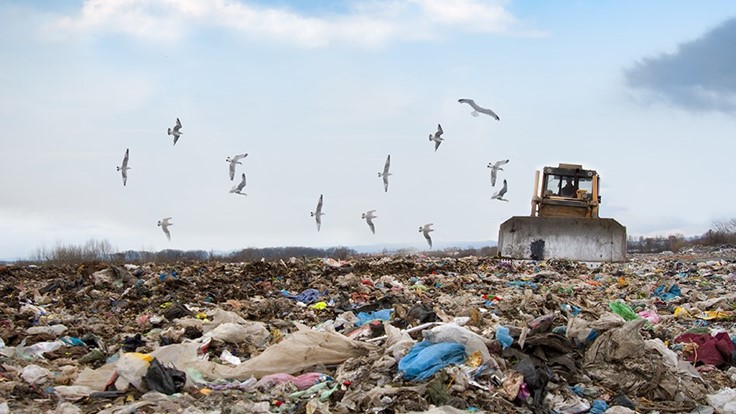Why do we have landfills?
Landfills are places where garbage is dumped and then buried. They are sometimes used to store the solid waste that comes from industrial processes. In wealthy countries, solid trash is often separated at the source and taken to a recycling centre. When something gets to be “e-waste,” it is taken apart and sold to someone who buys scrap metal. The rest of them are taken to dumps where they are buried under tonnes of trash and dirt. The main reason for this is that most people don’t understand how important recycling is.
Different kinds of landfill
Municipal Waste Landfills
You can put trash in places that keep it out of the environment until it is safe to do so. When it no longer has any physical, chemical, or biological properties, it is safe. Sanitary landfills use technology to keep harmful substances from leaking out and to keep trash from spreading. The two main ways that sanitary landfills are run are the trench method and the area method.
Landfills for municipal solid waste (Msw)
The city and state have rules about this kind of dump, which takes in trash from homes. The Environmental Protection Agency has set minimum standards that these dumps must meet (EPA). Some things might not be allowed in dumps for trash from cities and towns. Paints, cleaners, chemicals, motor oil, batteries, and pesticides are just some of the MSW that are often banned. But you can turn some things around the house into MSW and then throw them away.
Landfills for building waste and waste from remodelling
The trash from building, remodelling, tearing down, and building bridges goes into these landfills. Different types of waste include concrete, wood, asphalt, gypsum (the main ingredient in drywall), metals, bricks, glass, plastics, trees, stumps, dirt, rock, and building materials (doors, windows, plumbing fixtures).
Landfills for industrial waste
Industrial waste that is not dangerous comes from making things and other industrial activities.

Specific landfills
Truk-Away Landfill (Warwick)
The Warwick landfill closed in 1978 and operated prior to the implementation of stringent rules. Nobody knows for certain what lies beneath 36 acres in the Buckeye Brook watershed. Over the last 43 years, remediation efforts have amounted to no more than 2 feet of loam being laid on top of degraded ground laden with hazardous materials.
During a state examination of the property in June 1982, a former Truk-Away Landfill employee told the Rhode Island Department of Health that he had been in charge of the dumping of hundreds of drums of chemical waste. Benzyl chloride, wasted solvents, chlorobenzene, dyes, pigments, and intermediate chemicals derived from benzene reactions, phenols, hydrogen peroxide, and benzenesulfonyl chloride were among the contents of the drums.
Those drums are only a small portion of what was and may have been dumped at the landfill. Truk-Away Landfill began accepting municipal and industrial waste in 1970 and closed eight years later.
Effects of landfills
Garbage dumpster make climate change worse
One tonne of junk that breaks down into small pieces can be used to make 400 to 500 cubic metres of landfill gas. Methane and carbon dioxide make up most of landfill gas, but there are also small amounts of other gases. Methane is 25 times stronger than carbon dioxide when it comes to making the Earth warmer. Climate change and weather changes are getting worse.
Contamination of the soil and the water
Even though landfill membranes rarely break, the results can be very bad. Toxins, gases, and dangerous chemicals from landfills seep into the groundwater and soil, causing pollution. Putting poisons like metals, ammonium, carbon, and others into the environment changes the texture of the soil, making it less natural and less stable. Also hurt are aquatic animals and plants.
Landfills affect the health of people
Studies have shown that living near a landfill and spending a lot of time there can make you more likely to get cancer, have breathing problems, or have problems with your genes. High amounts of hydrogen and ammonia sulphide in the air can make asthma worse for a short time. The eyes, nose, and throat could also get irritated by these chemicals. People also know about chest pain, trouble sleeping, and losing weight as health problems. Methane and carbon dioxide could make tissues get very little oxygen, which can cause coordination problems, tiredness, nausea, and even fainting.
Providence Dumpster Rentals Center in Rhode Island plays a pivotal role in managing waste disposal needs efficiently and responsibly. Landfills are a critical component of waste management, and their proper operation and maintenance are essential for preserving our environment and public health.
✓ No hassle no hidden fee cheap dumpster rentals
✓ Experienced customer friendly staff
✓ Fastest delivery and pickup
✓ Get a quote now: (401) 344-4590
✓ Guaranteed lower price
✓ Green company helping the environment
✓ Join hundreds of satisfied customers
